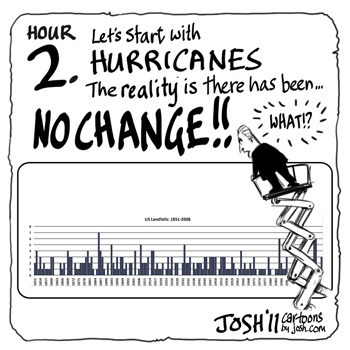trysail
Catch Me Who Can
- Joined
- Nov 8, 2005
- Posts
- 25,593
Reasons to be a [catastrophic anthropogenic] Global Warming Skeptic:
http://pajamasmedia.com/tatler/2011/08/30/reasons-to-be-a-global-warming-skeptic/
By Charles Martin
(I ended up writing this as a lengthy answer to someone on Google+ — might as well let the world see it.)
Here’s what I’ve said so far:
http://pajamasmedia.com/tatler/2011/08/30/reasons-to-be-a-global-warming-skeptic/



